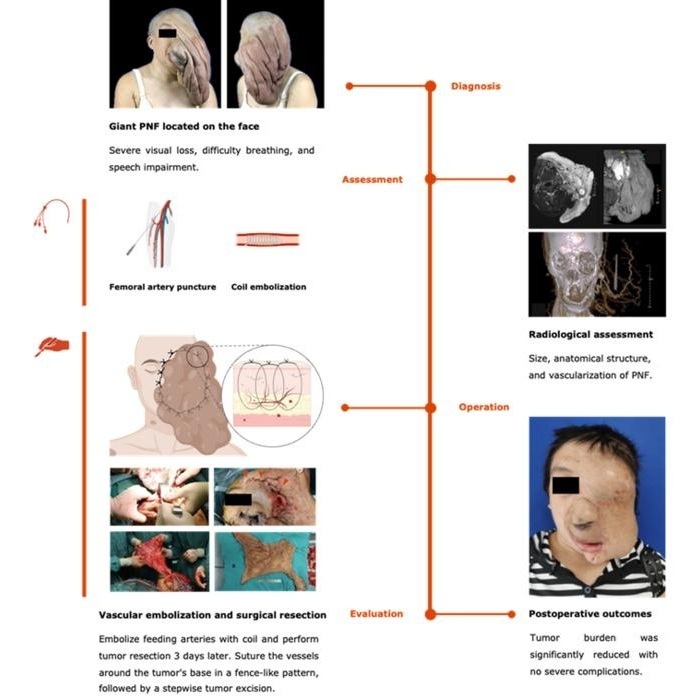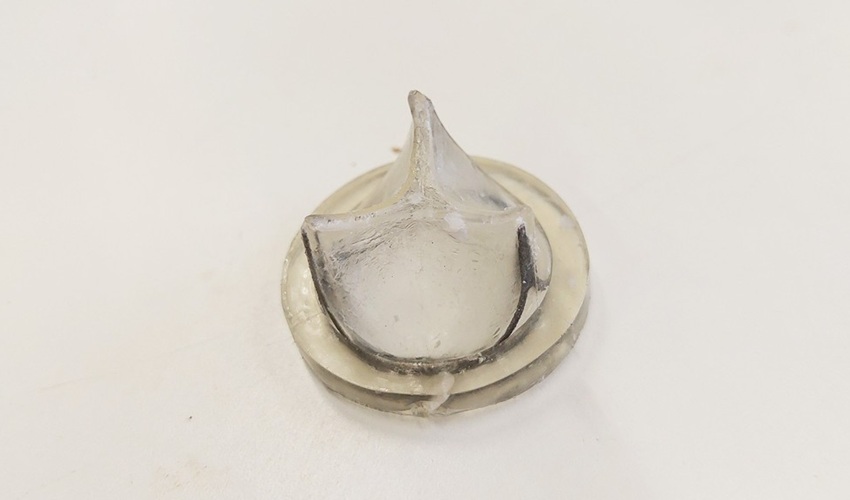Hydrogel-Based Spray Kills Antibiotic-Resistant Bacteria in Wounds and Biomedical Implants
|
By HospiMedica International staff writers Posted on 27 Jan 2023 |
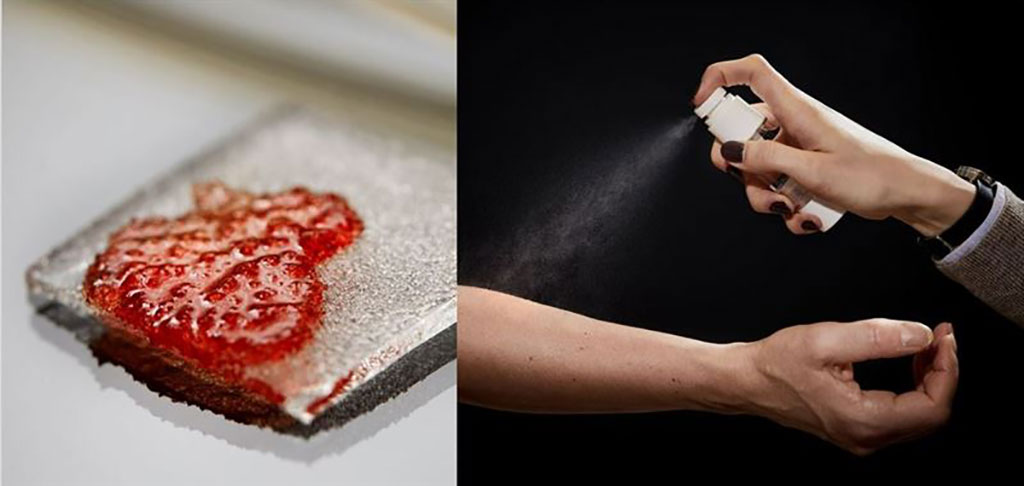
Antibiotic resistance has been ranked among the top ten threats to global health by the World Health Organization (WHO). Antibiotic-resistant bacteria is estimated to cause almost 1.3 million deaths annually across the world. Hence, there is a great need for new solutions to tackle antibiotic-resistant bacteria and reduce the use of antibiotics. Infections are a major problem for treatments in which materials like implants and catheters are inserted into the patient’s body. This makes it vital to develop new antibacterial biomaterials that can treat, replace or modify organs, tissue or functions in a biological body. Now, a group of researchers is developing a new spray that can kill even antibiotic-resistant bacteria, and can be used for wound care as well as directly on implants and other medical devices.
In an effort to slow down the spread and development of drug resistance, researchers at Chalmers University of Technology (Gothenburg, Sweden) are developing a new antibacterial material for use in healthcare settings that can become an effective tool against antibiotic resistance. The material consists of small hydrogel particles that are equipped with a type of peptide that effectively kills and binds bacteria. Attaching the peptides to the particles creates a protective environment and increases their stability, allowing them to work with body fluids such as blood, which otherwise inactivates the peptides and make them difficult to use in healthcare settings.
In previous studies, the researchers had shown how the peptides can be used for wound care materials like wound dressings. Now, in two of their latest studies, the team has shown that the bactericidal material can be used both in the form of a wound spray and as a coating on medical devices implanted in the body. For both the spray and the coating, the researchers measured the bactericidal effect of the materials and found that it can last for up to 48 hours in contact with body fluids and for as long as a few years without contact with body fluids. The researchers also found that the material can kill 99.99% of the bacteria, enabling a wide range of clinical applications. Since the usage of urinary catheters is one of the primary causes of hospital-acquired infection, the researchers tested the coating on silicone materials used for catheters, although it can be also used on other biomaterials. Being non-toxic, the material can also be used directly on or in the body for preventing or curing an infection without any adverse impact on the natural healing process.
“Our innovation can have a dual impact in the fight against antibiotic resistance. The material has been shown to be effective against many different types of bacteria, including those that are resistant to antibiotics, such as Methicillin-resistant Staphylococcus aureus (MRSA), while also having the potential to prevent infections and thus reduce the need for antibiotics,” said Martin Andersson, head of research for the study and Professor at the Department of Chemistry and Chemical Engineering at Chalmers.
“The substance in this wound spray is completely non-toxic and does not affect human cells. Unlike existing bactericidal sprays, it does not inhibit the body’s healing process. The materials, which are simply sprayed onto the wound, can also kill the bacteria in a shorter time,” explained Edvin Blomstrand, PhD student at the Department of Chemistry and Chemical Engineering at Chalmers.
“Although the catheters are sterile when unpacked, they can become contaminated with bacteria while they are being introduced into the body, which can lead to infection. One major advantage of this coating is that the bacteria are killed as soon as they come into contact with the surface. Another is that it can be applied to existing products that are already used in healthcare, so it is not necessary to produce new ones,” added Annija Stepulane, PhD student at the Department of Chemistry and Chemical Engineering at Chalmers.
Related Links:
Chalmers University of Technology
Latest Patient Care News
- Revolutionary Automatic IV-Line Flushing Device to Enhance Infusion Care
- VR Training Tool Combats Contamination of Portable Medical Equipment
- Portable Biosensor Platform to Reduce Hospital-Acquired Infections
- First-Of-Its-Kind Portable Germicidal Light Technology Disinfects High-Touch Clinical Surfaces in Seconds
- Surgical Capacity Optimization Solution Helps Hospitals Boost OR Utilization

- Game-Changing Innovation in Surgical Instrument Sterilization Significantly Improves OR Throughput
- Next Gen ICU Bed to Help Address Complex Critical Care Needs
- Groundbreaking AI-Powered UV-C Disinfection Technology Redefines Infection Control Landscape
- Clean Hospitals Can Reduce Antibiotic Resistance, Save Lives
- Smart Hospital Beds Improve Accuracy of Medical Diagnosis
- New Fast Endoscope Drying System Improves Productivity and Traceability
- World’s First Automated Endoscope Cleaner Fights Antimicrobial Resistance
- Portable High-Capacity Digital Stretcher Scales Provide Precision Weighing for Patients in ER
- Portable Clinical Scale with Remote Indicator Allows for Flexible Patient Weighing Use
- Innovative and Highly Customizable Medical Carts Offer Unlimited Configuration Possibilities
- Biomolecular Wound Healing Film Adheres to Sensitive Tissue and Releases Active Ingredients
Channels
Surgical Techniques
view channel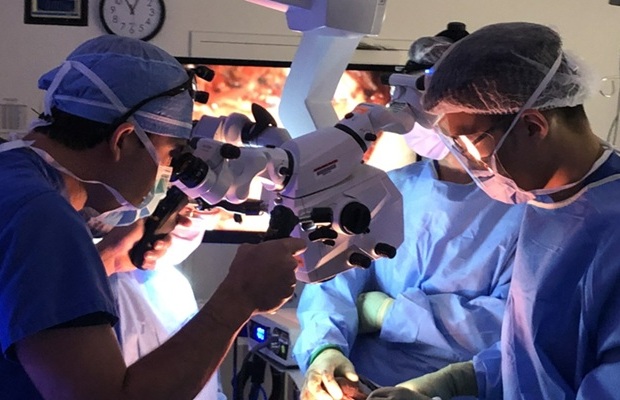
First-Of-Its-Kind Drug Illuminates Nerve Tissue for Faster and Safer Surgery
Surgeons face significant challenges when performing procedures near nerves, as they must work cautiously to avoid causing nerve damage, which can complicate the patient's recovery. Electrophysical monitors... Read more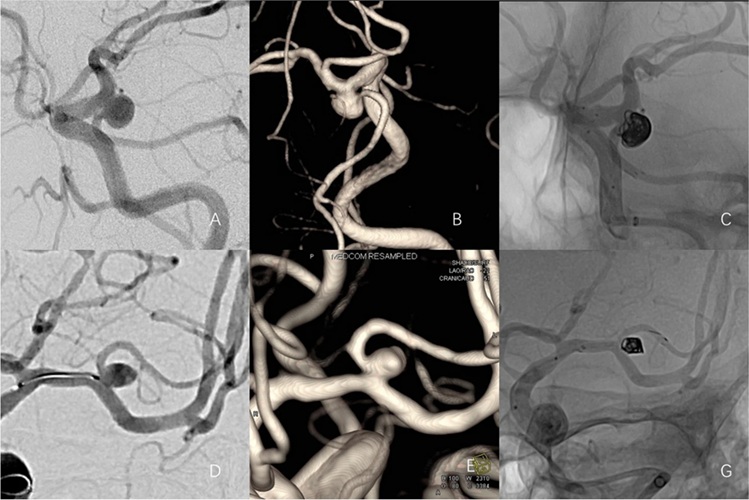
Neuroform Atlas Stent-Assisted Coiling Found Effective Even in Smaller Arteries
Aneurysms, especially when located in the brain, can be life-threatening if not treated effectively. Intracranial aneurysms, caused by the dilation of blood vessels due to weaknesses in the vessel wall,... Read morePatient Care
view channel
Revolutionary Automatic IV-Line Flushing Device to Enhance Infusion Care
More than 80% of in-hospital patients receive intravenous (IV) therapy. Every dose of IV medicine delivered in a small volume (<250 mL) infusion bag should be followed by subsequent flushing to ensure... Read more
VR Training Tool Combats Contamination of Portable Medical Equipment
Healthcare-associated infections (HAIs) impact one in every 31 patients, cause nearly 100,000 deaths each year, and cost USD 28.4 billion in direct medical expenses. Notably, up to 75% of these infections... Read more
Portable Biosensor Platform to Reduce Hospital-Acquired Infections
Approximately 4 million patients in the European Union acquire healthcare-associated infections (HAIs) or nosocomial infections each year, with around 37,000 deaths directly resulting from these infections,... Read moreFirst-Of-Its-Kind Portable Germicidal Light Technology Disinfects High-Touch Clinical Surfaces in Seconds
Reducing healthcare-acquired infections (HAIs) remains a pressing issue within global healthcare systems. In the United States alone, 1.7 million patients contract HAIs annually, leading to approximately... Read moreHealth IT
view channel
Printable Molecule-Selective Nanoparticles Enable Mass Production of Wearable Biosensors
The future of medicine is likely to focus on the personalization of healthcare—understanding exactly what an individual requires and delivering the appropriate combination of nutrients, metabolites, and... Read more
Smartwatches Could Detect Congestive Heart Failure
Diagnosing congestive heart failure (CHF) typically requires expensive and time-consuming imaging techniques like echocardiography, also known as cardiac ultrasound. Previously, detecting CHF by analyzing... Read moreBusiness
view channel
Bayer and Broad Institute Extend Research Collaboration to Develop New Cardiovascular Therapies
A research collaboration will focus on the joint discovery of novel therapeutic approaches based on findings in human genomics research related to cardiovascular diseases. Bayer (Berlin, Germany) and... Read more












